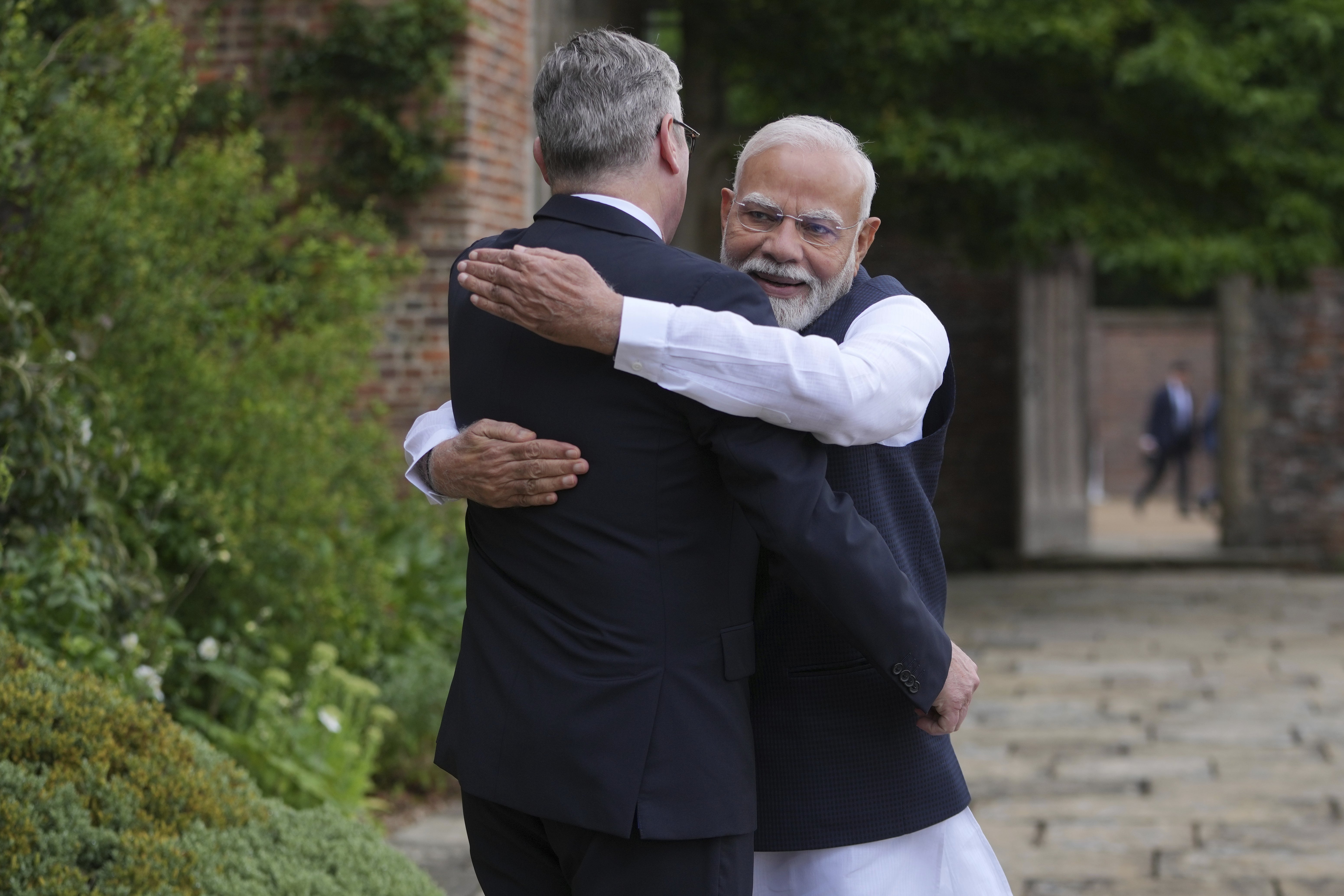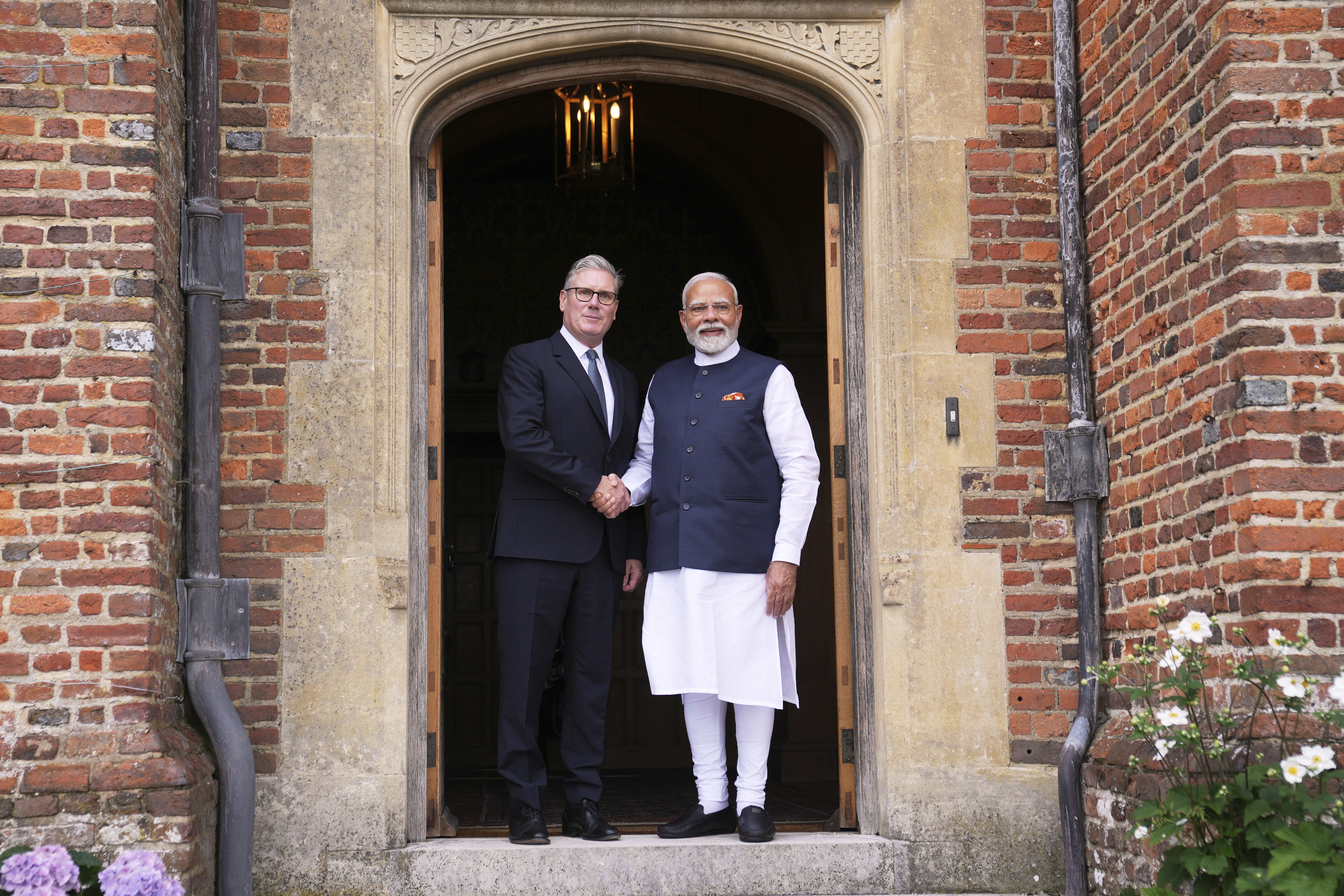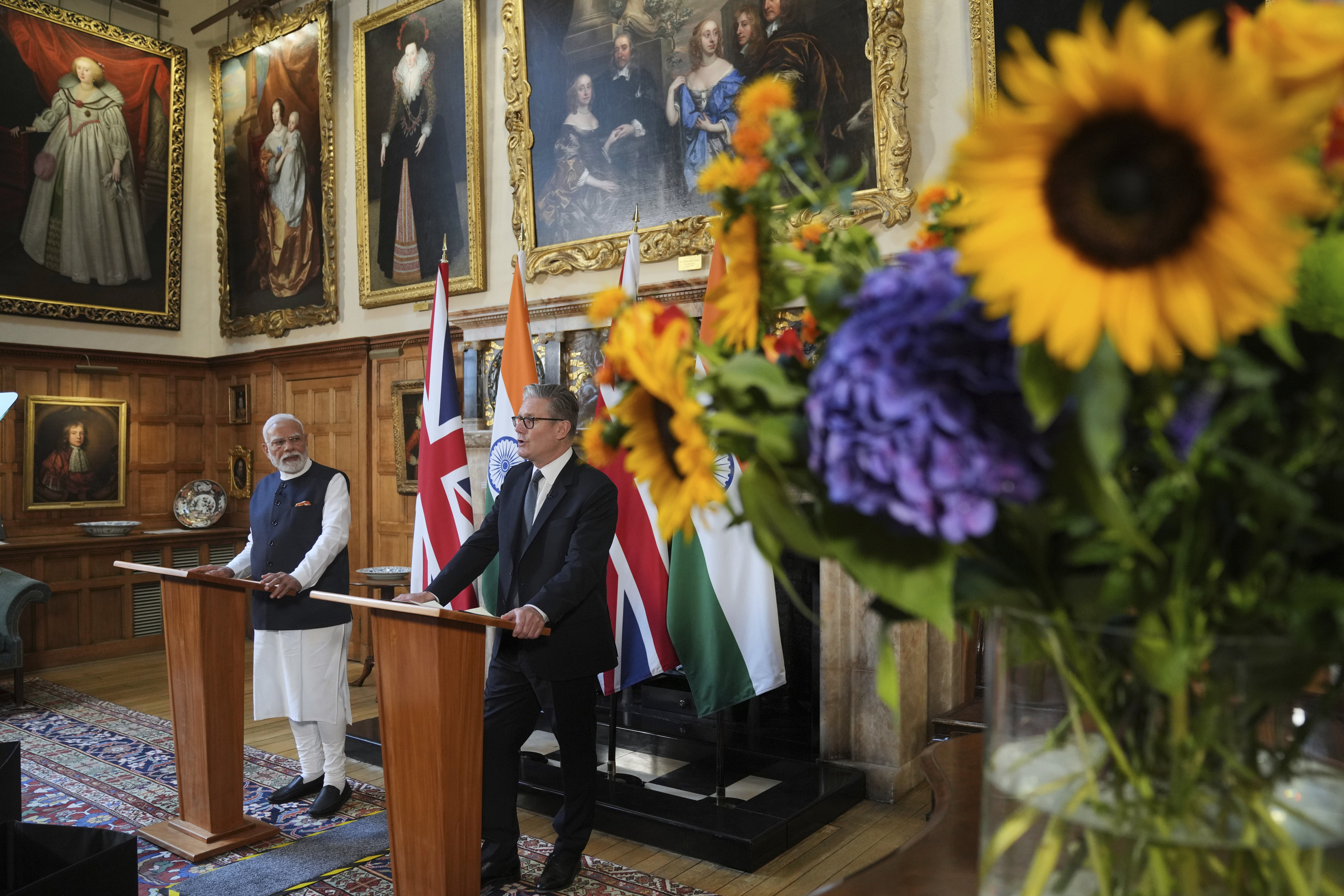Britain and India signed a free trade agreement on Thursday during a visit by Indian prime minister Narendra Modi, sealing a deal to cut tariffs on goods from textiles to whisky and cars and allow more market access for businesses.
Sir Keir Starmer told his Indian counterpart the signing of the trade deal was a “historic day” for the two countries.
At the prime minister’s country residence Chequers, Sir Keir said the deal marked a “step change” in relations.
Mr Modi said they were “writing a new chapter” in the UK and India’s shared history.
The deal is set to be worth £6bn in investment for the British economy and the two leaders have also agreed to increase efforts to tackle illegal migration and organised crime. The two countries concluded talks on the trade pact in May after three years of stop-start negotiations, with both sides hastening efforts to clinch a deal in the shadow of tariff turmoil unleashed by US president Donald Trump.
Sir Keir said: “I’m really pleased and privileged to welcome you here today on what I consider to be a historic day for both of our countries, and the delivery of the commitment that we made to each other.”

Mr Modi, speaking via a translator, described the UK and India as “natural partners”.
"We've entered a new global era, and that is one that requires us to step up, not to stand aside... by building deeper partnerships and alliances," Mr Starmer said. Mr Modi said the visit would "go a long way in advancing the economic partnership between our nations".
Business secretary Jonathan Reynolds and his Indian counterpart Piyush Goyal then formally signed the trade agreement in the great hall of Chequers.
The UK-India trade deal is understood to be the largest of its kind for its economic impact on Britain.

It will see tariffs on an array of British goods reduced from an average of 15 per cent to 3 per cent, with the aim of boosting the £11bn of imports into the south Asian nation.
Whisky tariffs will be slashed in half and will fall further over successive years, while other industries including soft drinks, cars and cosmetics are also expected to see cheaper duties.
The deal is expected to result in 2,200 jobs across the country and £6bn investment by British and Indian businesses.
It is Britain's biggest trade deal since it left the European Union in 2020, although its impact will be a fraction of the effect of leaving the orbit of its closest trading partner.
For India, it represents its biggest strategic partnership with an advanced economy, and one which could provide a template for a long mooted deal with the EU as well as talks with other regions. It will take effect after a ratification process, likely within a year.

The UK and India are also bolstering co-operation on tackling corruption, fraud, organised crime and illegal migration, by sharing criminal records and other intelligence.
But the deal has not given the UK as much access as it would have liked to India’s financial and legal services industries.
The agreement promises some benefits for the UK’s financial services, with Chancellor Rachel Reeves understood to have pushed on behalf of the sector in discussions with her Indian counterpart.
But more wide-ranging access was not agreed, and talks continue on a bilateral investment treaty aimed at protecting British investments in India and vice versa.
The two nations also continue to discuss UK plans for a tax on high-carbon industries, which India believes could hit its imports unfairly.

Negotiations on the deal began when Boris Johnson was prime minister in 2022, and were concluded in May this year.
Shadow business secretary Andrew Griffith said it had only been made possible “because of Brexit delivered by the Conservatives”.
The Confederation of British Industry (CBI) has said that the signing “sends a powerful signal that the UK is open for business and remains resolute in its commitment to free and fair trade”.
Chief executive Rain Newton-Smith added: “A trade agreement with India – one of the world’s fastest-growing economies – is a springboard for long-term partnership and prosperity. UK firms can take advantage of this new platform to scale, diversify and compete on the global stage.”
Young men need role models, PM told – or UK risks Andrew Tate-inspired generation
Business news live: Tesla shares sink after Musk warning, Starmer to sign £6bn deal
We’re ready for riots, minister declares amid growing fears of summer unrest
Millions of households to save money on energy bills under new plans
Two pilots killed in Southend Airport plane crash are named
Rachel Booth fundraiser launched for her three sons after death of ‘loving’ mother







